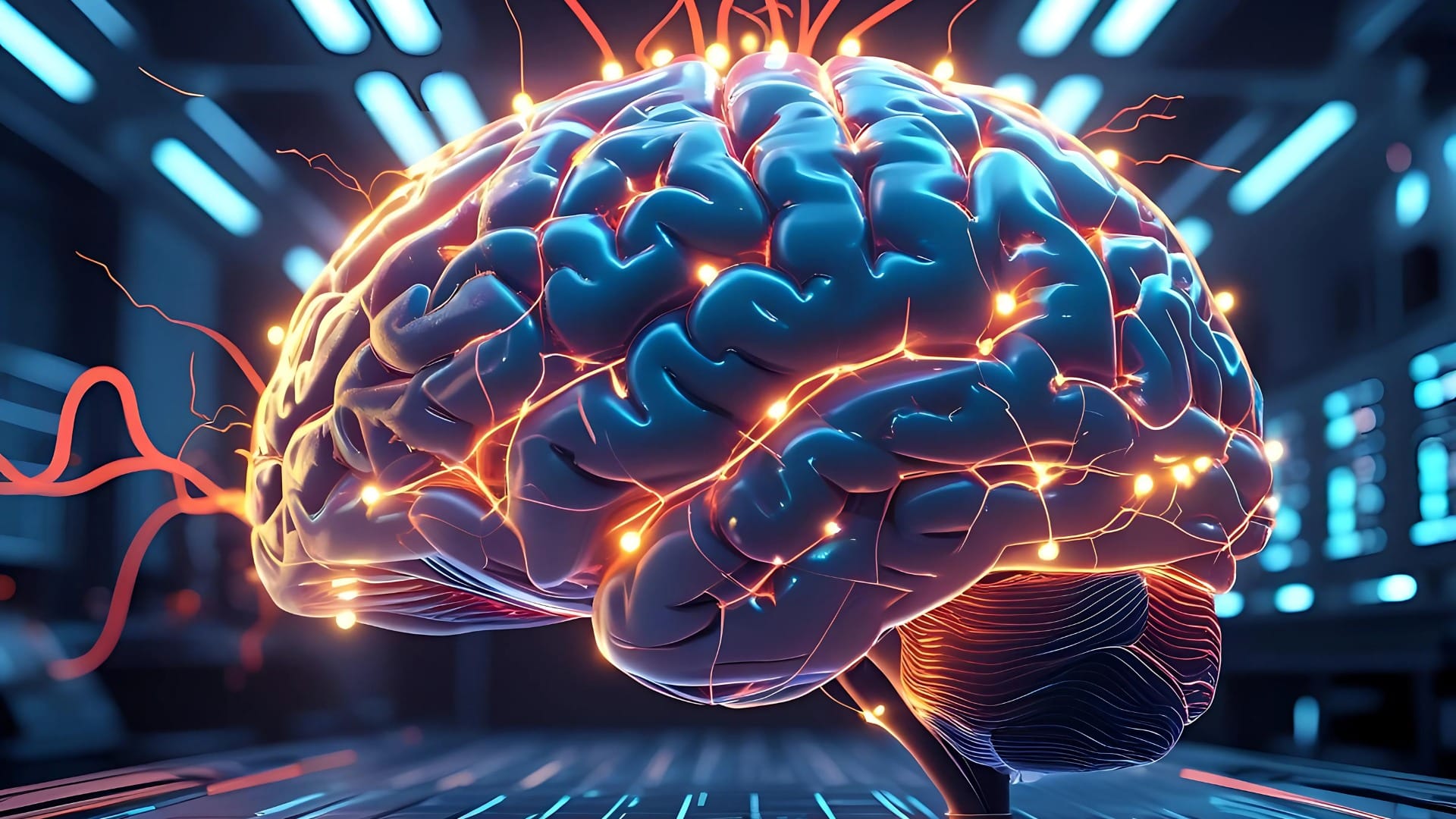Robotics: The Definitive Guide
Through my experience, I have learned that successful design is the key to developing robots that can revolutionize industries and enhance human life.

Overview
Definition of Robots
As a robotics engineer, I have a deep understanding of the design principles that govern the creation of robots. The process of designing a robot involves meticulous planning, conceptualization, and implementation of mechanical and electronic components. The design phase is crucial as it sets the foundation for the robot's functionality, efficiency, and adaptability to various tasks. Additionally, the design of a robot encompasses considerations for safety, precision, and energy efficiency. Through my experience, I have learned that successful design is the key to developing robots that can revolutionize industries and enhance human life.
History of Robotics
As a researcher in the field of robotics, I have delved into the fascinating history of this domain. The evolution of robotics dates back to ancient times, with the invention of automatons and mechanical devices. The modern era of robotics began in the 20th century with the development of the first industrial robots. These early machines paved the way for the sophisticated robots we see today. The integration of AI and machine learning has further propelled the capabilities of robots, enabling them to perform complex tasks with precision and efficiency. Looking back at the milestones in robotics, it's clear that robots have become an integral part of our society, revolutionizing various industries. From manufacturing to healthcare, robots have played a pivotal role in advancing human capabilities and improving our quality of life. As I continue my research, I am excited about the prospects of robotics and its potential applications in space exploration. The advancements in AI and machine learning are opening up new possibilities, and I believe that the integration of robots with the human workforce will lead to a synergistic collaboration. It's truly an exciting time to be involved in the field of robotics, with endless opportunities for innovation and growth. Make $3500 in a day using ChatGPT
Importance of Robots in Modern Society
Robots have become an integral part of modern society, revolutionizing the way we work, live, and interact. As an entrepreneur, I recognize the significant impact robots have had on various industries, from manufacturing to healthcare. Their ability to automate repetitive tasks, assist in complex surgeries, and enhance productivity is undeniable. The incorporation of robots in daily life has not only improved efficiency but has also paved the way for new job opportunities and innovative business models. The potential for robots to shape the future of work and create value for businesses is immense. It's clear that the role of robots in modern society is multifaceted, and their importance cannot be overstated.
Types of Robots

Industrial Robots
As I explore the realm of Industrial Robots, I am captivated by the incredible impact they have had on various industries. These robots are designed to perform precise and repetitive tasks with remarkable efficiency. They have revolutionized manufacturing processes, leading to increased productivity and quality control. The integration of Industrial Robots has significantly transformed the production landscape, enabling companies to streamline their operations and stay competitive in the global market. Moreover, the advancements in robotics have paved the way for exciting innovations, such as marine innovation, which holds promise for future applications in underwater exploration and research.
Service Robots
As a robotics enthusiast, I find Service Robots particularly fascinating due to their diverse range of applications. These robots are designed to assist and serve humans in various settings, from industrial and medical environments to everyday tasks in households and public spaces. Service robots have the potential to revolutionize the way we interact with technology, enhancing our quality of life and promoting efficiency. One notable area of development for service robots is in the realm of outdoor adventure, where they can be utilized for tasks such as exploration, search and rescue, and environmental monitoring. The integration of advanced technologies in service robots opens up exciting possibilities for enhancing safety and productivity in outdoor environments.
Medical Robots
As a specialist in the field of Medical Robots, I have witnessed the remarkable impact of these advanced technologies on the healthcare industry. Medical robots are designed to perform sophisticated surgical procedures with precision and accuracy, reducing the margin of error and enhancing patient outcomes. Moreover, they enable minimally invasive surgeries, leading to faster recovery times and reduced hospital stays. The integration of project management techniques in the development of medical robots has streamlined the innovation process, ensuring that these cutting-edge devices meet the highest standards of quality and safety.
Challenges in Robotics

Ethical Considerations
As a roboticist, I am acutely aware of the Ethical Considerations that arise in the field of robotics. It is imperative to address the ethical implications of autonomous decision-making by robots, especially in contexts where human lives are at stake. This involves programming robots to adhere to ethical guidelines and principles, ensuring that they prioritize human safety and well-being. Additionally, the ethical use of robots in sensitive areas such as healthcare and home gardening requires careful consideration of privacy, consent, and data security. These ethical considerations play a pivotal role in shaping the future of robotics and its integration into society.
Safety Concerns
As a roboticist, I am acutely aware of the safety concerns that arise in the development and deployment of robots. One of the most pressing issues is the potential for robots to inadvertently cause harm to humans due to malfunctions or errors in programming. This is particularly critical in scenarios where robots are used near humans, such as in medical settings or collaborative work environments. Additionally, the ethical considerations surrounding the use of robots in sensitive tasks, such as autonomous decision-making, raise significant concerns. We must address these challenges proactively, ensuring that robots are designed and programmed with the utmost consideration for human safety and ethical principles. The implications of these safety concerns extend far beyond the realm of robotics, as they have the potential to impact various industries and even extract billions of emails in minutes if left unaddressed. Therefore, the robotics community must prioritize safety and ethical considerations in all aspects of robot development and deployment.
Integration with the Human Workforce
As I delve into the challenges of robotics, one of the key considerations is the integration with the human workforce. This integration, often referred to as Man and Machine presents ethical and operational challenges that require careful navigation. It involves not only the technical aspects of combining human and robotic capabilities but also the impact on the work environment and the well-being of the human workers. The relationship between man and machine is evolving, and it's essential to address the concerns and opportunities that arise from this integration. By fostering a collaborative and supportive environment, we can ensure a harmonious coexistence of human and robotic workforce, leading to a more efficient and innovative future.
Future of Robotics

Advancements in AI and Machine Learning
As a researcher in the field of robotics, I have witnessed the rapid progress and evolution of AI and machine learning in shaping the future of robotics. The integration of advanced algorithms and data-driven decision-making has lifted the mystery curtain on the capabilities of robots, enabling them to perform complex tasks with precision and efficiency. This has paved the way for groundbreaking developments in various industries, from manufacturing to healthcare. The potential of AI and machine learning to revolutionize robotics is undeniable, and it presents both exciting opportunities and significant challenges for the future of automation.
Impact on Job Market
As a professional in the field of robotics, I am acutely aware of the significant impact that robots and automation have on the job market. The advancements in AI and machine learning have led to the rise of smart robots that are capable of performing complex tasks with precision and efficiency. While this technological progress has opened up new opportunities, it has also raised concerns about the displacement of human workers. However, it is important to note that the integration of robots in various industries has created a demand for skilled workers who can operate and maintain these advanced robotic systems. The future job market is likely to see a shift towards roles that require expertise in robotics, AI, and automation. As a result, individuals who equip themselves with the necessary skills through specialized training programs, such as the Entire AI-Powered Digital Marketing Course, will be well-positioned to thrive in the evolving landscape of the workforce.
Potential Applications in Space Exploration
As we look to the future of space exploration, the role of robots becomes increasingly significant. The potential applications of robots in space are diverse and impactful. From autonomous rovers to robotic arms on space stations, robots are poised to revolutionize our approach to space exploration. These robots are designed to withstand extreme conditions and carry out complex tasks with precision and efficiency. The utilization of robots in space not only reduces the risk to human astronauts but also enables us to gather valuable data and conduct experiments in environments that are inhospitable to humans. The advancement of robotic technology in space exploration is paving the way for unprecedented discoveries and breakthroughs that will shape the future of space science and exploration.
Conclusion

Summary of Key Points
As we reflect on the key points discussed, it becomes evident that robots have significantly impacted various industries. The integration of robots in manufacturing, healthcare, and service sectors has revolutionized the way tasks are performed. This transformation has led to increased efficiency, precision, and safety in operations across different industries. The role of robots in these sectors cannot be overstated, as they continue to redefine the standards of productivity and innovation.
Final Thoughts
As I reflect on the advancements in robotics and the potential impact on society, I am struck by the profound implications of content creation. The ability of robots to autonomously generate meaningful and engaging content has the potential to revolutionize various industries. From marketing to education, the role of robots in content creation is poised to bring about significant changes. This development raises important questions about the future of human creativity and the ethical considerations surrounding the use of AI in content creation. As we navigate this evolving landscape, it is essential to consider the implications of this technological shift and its broader implications for society.
Future Prospects
As I look ahead to the future of robotics, I envision a landscape that is deeply intertwined with advancements in AI and Machine Learning. These technologies are poised to revolutionize the capabilities of robots, enabling them to adapt and learn in real-time, leading to unprecedented levels of autonomy and problem-solving. The impact of these advancements on the job market is a topic of great interest, with concerns about the displacement of human workers and the need for new skill sets. Moreover, the potential applications of robots in space exploration are captivating, opening up possibilities for interplanetary missions and the development of extraterrestrial infrastructure. The prospects of robotics are indeed vast and full of potential, promising to reshape industries and pave the way for groundbreaking innovations.
In conclusion, Bookspotz is the go-to platform for independent creative content. With a focus on the changing world of literature and art, Bookspotz provides a unique space for writers, artists, and readers to connect and explore new ideas. Visit Bookspotz today to discover a world of creativity and inspiration.




